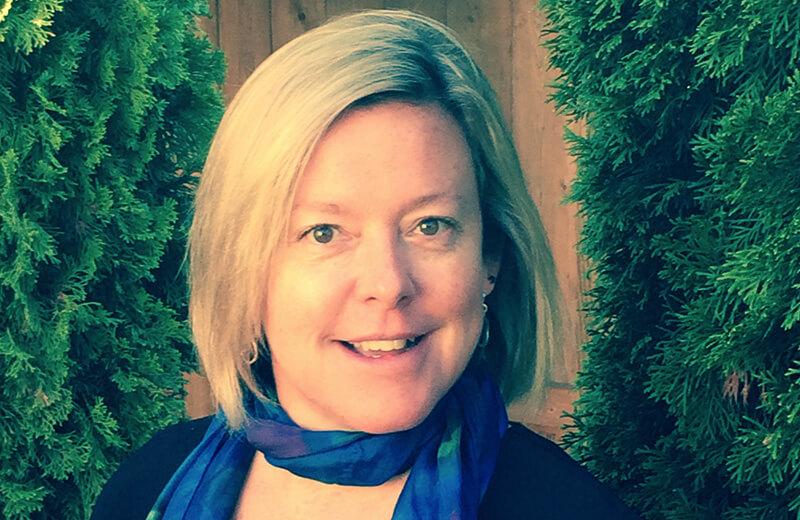Research Associate Professor Kimberly Wallin has been appointed Interim Associate Dean for Research and Graduate Programs in the University of Vermont Rubenstein School. As a faculty member in the School with a joint research appointment at the USDA Forest Service Northern Research Station since 2007 and Director of Graduate Programs for the past five years, Dr. Wallin brings much research experience and graduate program leadership to her enhanced role as Associate Dean.
“I am honored to serve in this capacity in the Rubenstein School,” shares Dr. Wallin. “This is an important position supporting and advancing the research and graduate education mission of the School. The mission includes supporting integrated research to address environmental and natural resources challenges faced by regional to global communities. I’ll continue working with faculty and graduate students to provide support and leadership of School research endeavors and the graduate program.”
“We are excited to see this position of the Associate Dean for Research and Graduate Programs re-established in the School and appreciate Dr. Wallin's willingness to provide the leadership in this capacity. Dr. Wallin brings a stellar track record of research productivity, graduate student mentorship, and leadership of the graduate program from her prior position of Director of the Graduate Program,” acknowledges Dean Nancy Mathews. “A growing priority for the School will be to strengthen the research enterprise and enhance support for researchers, while promoting the highest standards for scholarship, academic achievement, and impact. Dr. Wallin will be instrumental in making this happen.”
With expertise in forestry, ecology, genetics, and entomology, Dr. Wallin conducts research, in collaboration with other scientists and stakeholders, which explores complex interactions that define forest ecosystems. She focuses on questions related to patterns and functions of forests in response to human-induced changes in climate, land use, and introduction of non-native invasive terrestrial organisms. Recently, she has integrated environmental sociology and ecological economics into her research approach to explore the human-dimensions of management decisions and land-use change.
Dr. Wallin was recently featured in the national media for her collaborative research with Oregon State University and the Forest Service on the release of predatory silver flies from the Pacific Northwest. These predators will attack and eat the hemlock woolly adelgid, a non-native invasive insect that kills eastern and Carolina hemlocks.
The success of her research program can be seen in her 37 peer-reviewed publications, 3 book chapters, numerous invited and volunteered national and international presentations, over $3 million in funding to support research and graduate students, and service on many professional committees and review panels and as associate editor for Journal of Forestry and Bulletin of Entomology. But Dr. Wallin sees the real contribution of her research program in the success of her graduate students.
Each of Dr. Wallin’s graduate student mentees who have finished a degree is gainfully employed in an environmental field. These include Associate Director of STEM Ambassadors at the University of Massachusetts, State Entomologists in Massachusetts and Washington, Department of Natural Resources State Forest Health Specialist for Minnesota, and an environmental teacher in New York. Still others have continued with their graduate work.
“Graduate students are vital to the success of both the Rubenstein School and University of Vermont research mission,” states Dr. Wallin. “They work with their mentors and peers to address environmental and natural resource challenges by integrating applied ecology, the environment, and society. Society is demanding a more integrated approach to addressing these challenges. Graduate students bring a lot of energy, optimism, and new ideas to our research program. They often push the envelope of science with their ideas and perspectives. They are the future generators of knowledge.”
Dr. Wallin will continue to teach Forest Ecosystem Health and Environment and Sustainability in Arid Ecosystems, both service-learning courses involving community-based projects, as well as Invasion Ecology and Management. Each of her courses is open to graduate students.
To honor her dedication to engaging students in community-based service-learning projects, Dr. Wallin received the 2015 Lynne Bond Outstanding Service-Learning Faculty Award from the UVM Office of Community-University Partnerships and Service-Learning (CUPS).
